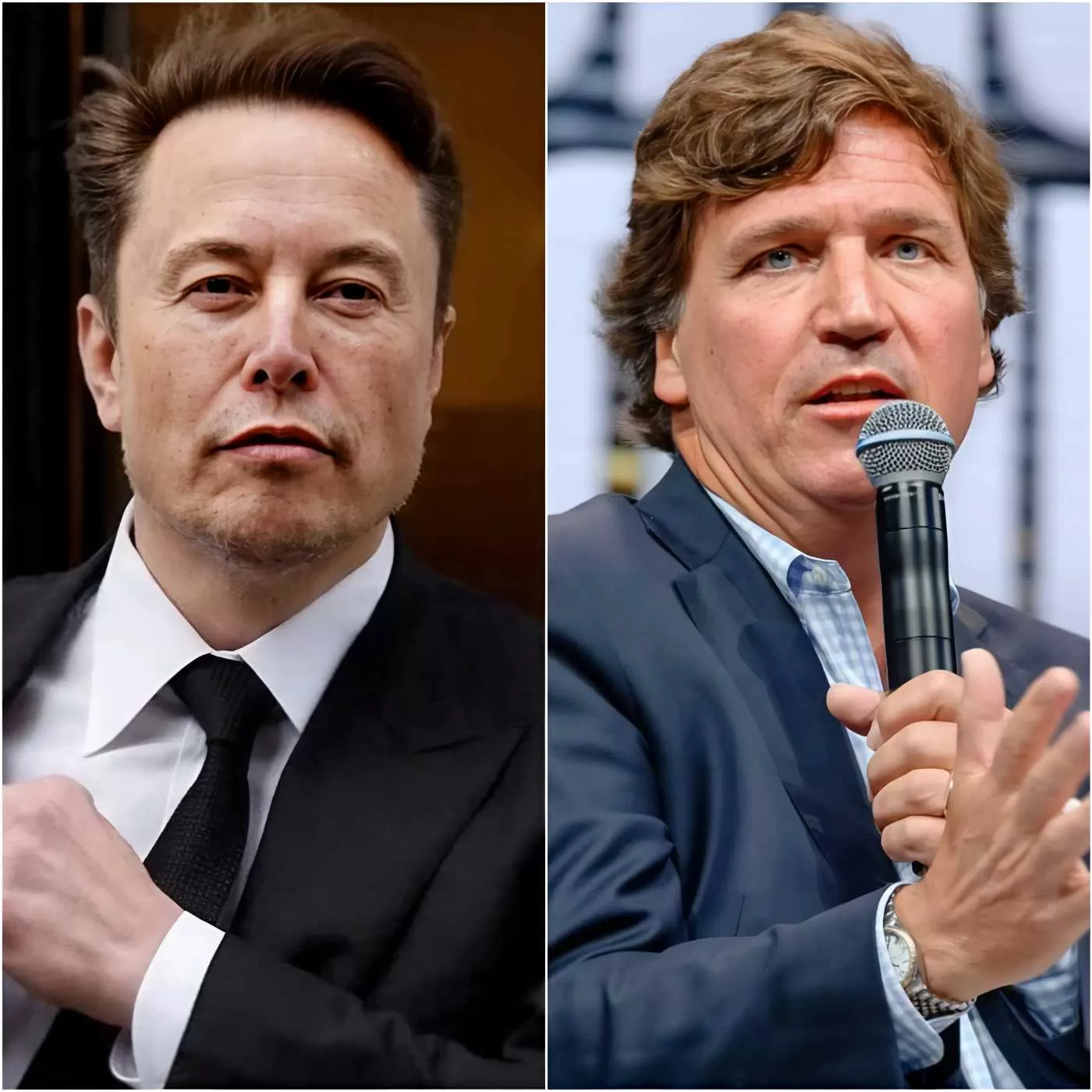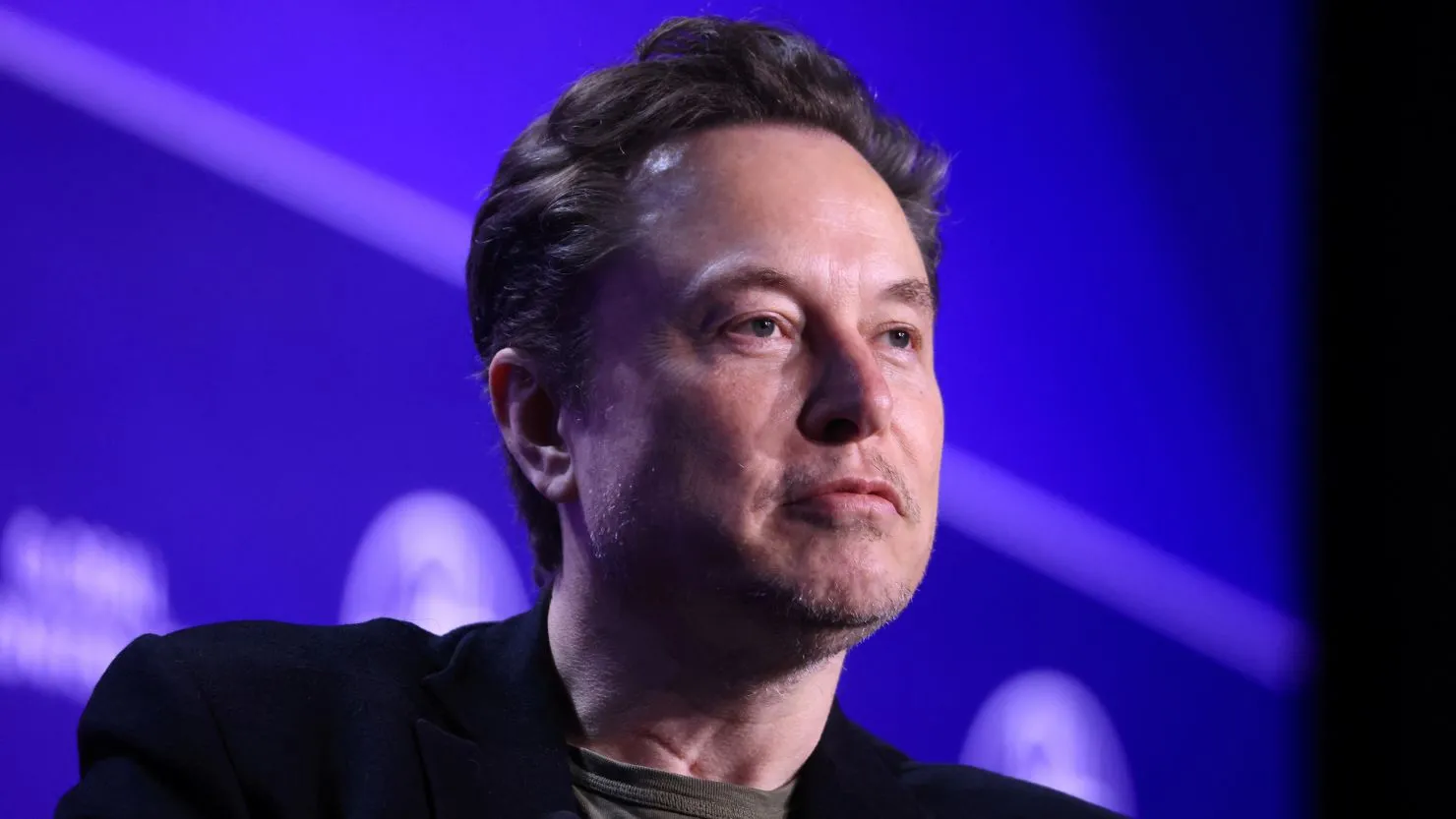In a bold move that’s sure to spark conversations across media and political landscapes, tech billionaire Elon Musk has announced that he will be funding a new anti-woke program featuring the controversial journalist and former Fox News host, Tucker Carlson. Musk’s decision to back the outspoken conservative commentator comes as part of a broader push to challenge what they see as the growing dominance of woke culture in mainstream media. The statement accompanying this announcement, in which Musk proclaimed, “We need more journalists like Tucker Carlson and fewer like Rachel Maddow,” has already generated significant buzz, adding fuel to an already fiery cultural debate.

The Rise of Anti-Woke Movements
In recent years, the term “woke” has evolved from a positive descriptor of social awareness to a politically charged label often used by critics to describe what they see as an overreach in progressive ideology. For those in the anti-woke camp, this movement represents an erosion of free speech and individual liberties, driven by political correctness and cancel culture. Elon Musk has long been a vocal critic of these trends, and his latest venture with Tucker Carlson aligns with his broader views on maintaining freedom of expression.
The partnership between Musk and Carlson brings together two of the most polarizing figures in their respective fields. Musk, the CEO of Tesla and SpaceX, has become a cultural icon not just for his entrepreneurial success but also for his outspoken and often controversial opinions on everything from artificial intelligence to free speech on social media. Carlson, on the other hand, has built his career on taking an unflinching stance against liberal ideologies and is widely regarded as one of the most influential conservative voices in media today.
Why Musk Chose Tucker Carlson
Musk’s decision to partner with Carlson speaks volumes about his vision for the media landscape. Carlson, who parted ways with Fox News in 2023, has been at the forefront of conservative media, frequently calling out what he sees as the overreach of woke culture, liberal policies, and mainstream media biases. His critiques of political correctness, social justice movements, and corporate censorship have resonated with a large segment of the population, making him a highly sought-after figure in conservative circles.
Musk’s statement, “We need more journalists like Tucker Carlson and fewer like Rachel Maddow,” reflects his belief that Carlson’s style of journalism—direct, confrontational, and unapologetically conservative—offers a necessary counterbalance to the liberal perspectives that dominate much of mainstream media. Maddow, a popular MSNBC host known for her progressive viewpoints, represents the other side of the spectrum. Musk’s comparison underscores the cultural divide between the two, with Carlson seen as a champion of free speech and traditional values, while Maddow is viewed as a voice for the progressive movement.
The Purpose of the Anti-Woke Program
The new program, expected to be launched later this year, will likely delve into issues related to free speech, political correctness, and the impact of woke ideology on American society. While full details of the program are yet to be revealed, sources suggest that it will provide Carlson with a platform to explore topics that he feels are ignored or suppressed by mainstream media outlets.
Musk’s involvement signals that the program will also focus on the technological and cultural shifts affecting media consumption today. With Musk’s extensive influence in the tech world, there is speculation that the program could leverage platforms such as X (formerly Twitter), which Musk purchased in 2022, or other innovative digital spaces to reach a wider audience. The potential for cross-platform integration between Carlson’s show and Musk’s ventures could create a media ecosystem where anti-woke voices can flourish without the restrictions imposed by traditional networks.
A New Era for Conservative Media?
Musk’s decision to fund an anti-woke program is part of a larger trend in conservative media, where there’s been a growing demand for content that challenges mainstream narratives. With figures like Carlson and other conservative commentators finding success on platforms like YouTube, Rumble, and podcasts, there’s a clear appetite for content that pushes back against the perceived dominance of progressive ideologies in entertainment, news, and education.
The Musk-Carlson collaboration could signal the start of a new era in conservative media, where high-profile entrepreneurs and tech leaders directly invest in content creation to counteract the narratives pushed by traditional outlets. For many conservatives, this partnership is a step toward reclaiming the media landscape and promoting a more balanced discourse in public debate.
What Viewers Can Expect
Viewers tuning in to Tucker Carlson’s new show, backed by Elon Musk, can expect hard-hitting discussions on topics such as freedom of speech, cancel culture, and the role of media in shaping societal values. Carlson’s previous shows were known for their no-nonsense approach to issues that he believes are being mishandled or underreported by mainstream outlets. It’s likely that his new program will continue this trend, offering an alternative viewpoint for those who feel alienated by woke culture.
Additionally, given Musk’s involvement, the show may delve into the intersection of technology and culture, with discussions on how Silicon Valley influences public discourse and the challenges of maintaining free speech in a world dominated by digital platforms. With both Carlson and Musk being vocal critics of Big Tech censorship, viewers can expect pointed conversations about how media companies and social media platforms are shaping political debates.

The Backlash: Woke Culture vs. Anti-Woke Movements
Unsurprisingly, the announcement of Musk’s funding for Carlson’s new show has drawn significant backlash from progressive commentators and liberal media outlets. Critics argue that anti-woke movements, while claiming to defend free speech, often serve to legitimize harmful rhetoric that targets marginalized communities. They fear that Musk’s backing will give Carlson a larger platform to spread divisive and inflammatory content that could exacerbate cultural tensions in an already polarized society.
On the other hand, supporters of Musk’s move argue that the program represents a necessary corrective to the overwhelming presence of liberal voices in media. They believe that Carlson’s show will provide a much-needed platform for conservative viewpoints and will challenge the status quo, giving viewers a chance to hear perspectives that are often ignored by mainstream outlets.
Musk’s Vision for Media: The Future of Free Speech
Elon Musk’s involvement in media is not new, but this latest development highlights his ongoing commitment to promoting free speech and challenging what he perceives as ideological conformity in the media. After purchasing X (formerly Twitter), Musk made significant changes to the platform’s policies, emphasizing the importance of open dialogue and reducing censorship. His decision to support Tucker Carlson’s new show reinforces this vision, pushing for a media landscape where diverse opinions can be freely expressed.
Musk’s push for more “Tucker Carlsons” and fewer “Rachel Maddows” isn’t just about conservative vs. liberal viewpoints—it’s about creating a media ecosystem where all sides of the debate can be heard without fear of being canceled or censored. For Musk, free speech is not just a political issue, but a foundational principle that must be protected in all arenas of public life, including media.